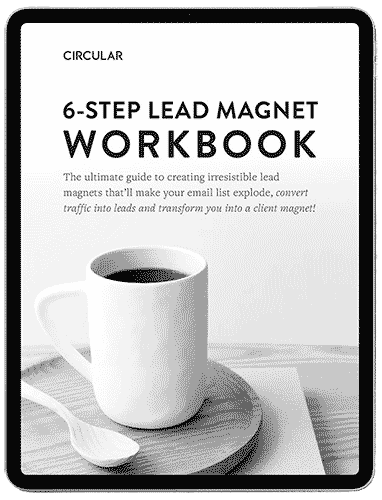While graduation can be an exciting time, for some people, the reality of the financial burden they’re facing hits them almost instantly. Education is one of the largest expenses one can make in their lifetime, besides maybe a car or a house. Knowing this may lead people to just grin and bear it. We chalk it up as a necessary evil. However, it does not have to be that way. There are some different options on how to save money on college.
Personally…
While I was in high school, I made it my goal to have a 3.5 weighted GPA so that getting accepted to college would be a LOT easier. I don’t know if weighted and unweighted GPAs are still a thing but in my school, honors and AP (Advanced Placement) classes counted 1.5-2x more, respectively, towards your GPA than the regular classes did. Recognizing that my strengths were in math and science, I aimed to take those honors or AP classes to offset my weakness in history or whatever other classes I was not interested in. I still had my unweighted GPA on my transcript which would be considered a raw, untouched GPA. However, since I took honors and AP science and math classes which I did well in, I had a higher weighted GPA which I used to apply to school.
It Wasn’t Just The Grades
I also paid for Seton Hall college credit while in my Honors Spanish class as part of a dual enrollment program. There was no way I was going to pass AP Spanish so I didn’t take a chance on that. Advanced placement classes also allowed me to take a test for college credit for that class. For example, since I was good at science, I took AP Biology. No need to take that again in college.
I went to my county’s vocational school part-time in WHILE I was in high school. So I would spend half a day at my regular high school and later on, around noon, a bus would pick students like me up and take us to the vocational school for the rest of the day. It was a FREE way to see if healthcare was a potential path for me and a chance to learn skills I would use in my career. If I hated healthcare, all I would have lost was time.
I took a look at the classes I needed to take for my degree. To fill an elective and decrease my course load, I took a sociology class at my community college the summer before I was to start full time at university.
How did this save me money on college?
I graduated from high school in 2007. I applied to two schools for nursing: Rutgers College of Nursing and William Paterson University (my safety school). While I got accepted at both, I only truly wanted to go to Rutgers. Easy choice! Even more excitingly, I got the merit scholarship I was hoping for, the James Dickson Carr Scholarship. I was eligible for that scholarship because of the work I did to keep my grades up. Strategy was used to decide on which classes I would lean into for those weighted advantages.
I chose to go to a great state school that was only half an hour away. This saved money on room & board. Additionally, state schools are generally cheaper than private institutions. In my first year of college, each semester cost $5,000. My scholarship was $5,000 a semester as long as I kept my grades up. Even though tuition went up EVERY single year I was there, the scholarship covered the bulk of my education. This was singlehandedly the most powerful tool I had in my quest to save money in college. I covered my books and other fees with a little bit of money my mother had saved up, unsubsidized loans, and part-time work.
I also saved money on books by purchasing or renting them online.
How This Saved Me Time
First of all, because of my experience at vocational school, I knew I would work in healthcare. This saved me time in figuring out what kind of degree I would pursue. Nursing married my love for science and my desire to help others.
Secondly, I was able to use dual enrollment, AP, and community college credits to create a more flexible and less stressful course schedule. Being a full-time student meant taking 12 credits but the curriculum laid out was about 15 credits a semester. Filling the electives with these credits freed up my time so I could focus more on the classes I had to take.
In the End
Using all these strategies, I saved a lot of money on my college costs. I graduated from school with a relatively small amount of student loans. In looking at my credit report, it was about $13,500 which has since been paid off. I didn’t even need all that money but I was young and stupid. What are you gonna do?
Additionally, I almost lost my scholarship because my grades slipped below the requirement. I don’t recall what it was at the time but in looking at their website today, it’s a 3.0 – 3.25 depending on what campus you’re enrolled on. I had to write a letter to keep it promising to bring my grades up because otherwise, school would have have been too much of a financial burden to bear. Very humbling. Fortunately, it never was an issue again. That’s the gist of how I went on to save money on college.
School’s Over….Now What?
If you’re currently experiencing student loan debt, refinancing might help you to obtain a better interest rate and lower your monthly costs. If you have loans from different lenders, consolidating that debt can provide the same benefits as refinancing.
The best way to save money on school loans is by finding a job that will cover some or all of your costs associated with obtaining your degree. I do not know what it is like in other industries, however, in healthcare there are such programs available. If you seek to relieve yourself of this debt, it is important when job-seeking to look for that benefit either on the company’s website or during your interview when discussing benefits. These are referred to as loan forgiveness or loan repayment programs. On the flip side, if you want help footing the bill for school, see if you can find a job that has tuition assistance as a benefit.
To-Do List
- Get as many credits as possible while in high school. Dual enrollment, AP courses, and CLEP testing make it so you can graduate high school with college credits at a much smaller cost. The guidance counselor may be a good resource in this regard. Use these credits to cover general electives and generic classes like English or Psychology.
- Leverage your strengths to maximize the effects of your efforts in high school. Higher GPA = easier to get college acceptances + merit scholarships.
- Take advantage of vocational programs in your area to explore interests. Depending on what skill you choose, you may not even need further schooling after that to enter the workforce.
- I hope no Haitian parents kill me for this one. Unless you’re sure of what you want to do, take time off before going to college. Developing skills, having experiences, and working can help you to determine what you want for your future. Going to college without knowing what you want is very costly.
- Find the most cost-effective way to obtain the degree you’re pursuing. This may mean getting your associate’s degree at a community college. Let’s say your career requires a bachelor’s, choose a university that will accept the majority, if not all, of your credits.
- If you have a college in mind, look to see what scholarships and/or grants they have available for their students and see what you need to qualify so you can start working on it as early as possible. If your school doesn’t have a lot of offerings, you may want to look into other schools. There are also scholarship websites, like Fastweb, that have tons of offerings you can apply for.
- Look for jobs that provide tuition assistance or loan repayment benefits.

While as a society we have become attached to name-brand colleges, we must remember that very few jobs actually care where and how you received your degree. Don’t believe me? Look up where the doctors you see went to school.
How do you or did you successfully manage the cost of schooling? What do you wish you could have done differently? Do you have other tips on how to save money on college costs. Let me know in the comments.


This is so important for current high school graduates to see! Hard work in high school does pay off!
Thank you for your comment. If I knew then what I knew now, I would’ve capitalized even more.
We are aiming for as many dual enrollment classes as possible in highchool. Hoping by graduation to have enough credits for an associates at a tiny fraction of the cost.
Exactly! Great job knowing what’s out there.
Really great post, I wish I could send this to my 16-year-old self!
Even I wish I knew all these options. I would saved a lot more time in college.
This is really important info I wish I had access to during high school 🙁 it would have saved me so much money and trouble! But now I can give this good advice to my kids so they won’t end up in student loan debt like I did! Thanks for sharing, this will help a lot of people!
You’re welcome. There are still cost saving options for those who carry debt as well.
Such great tips! It’s amazing just how many ways there are to save money if we just take the time to think things through.
Very true. There’s something to be said about thinking about things a little differently.
College is expensive! My daughter is about to start her second year of college and so far we are able to pay for the expenses out of pocket. She is on an academic scholarship which is extremely helpful. Hopefully, she will be able to graduate with little to no expenses.